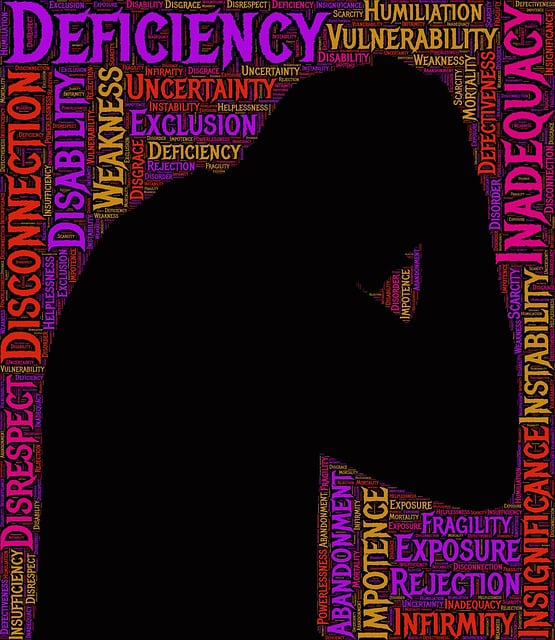Burnout among healthcare providers, particularly young adults, is a growing concern. Christian counseling offers a unique approach to combat burnout by providing safe spaces for exploring feelings, developing coping skills, and cultivating positive thinking patterns. Integrating mental health policy analysis and advocacy can create supportive environments that prioritize well-being, reducing burnout rates and fostering sustainable medical careers. For young adult healthcare workers, balancing job demands with self-care is crucial; therapy sessions, including Christian counseling, promote emotional intelligence, stress management, and resilience. Organizations can build resilient workplaces through accessible resources, flexible work arrangements, and public awareness campaigns, enhancing sustainability and support for employees and patients alike. Effective communication and robust support systems, along with evidence-based practices and faith-based principles, strengthen emotional resilience in young adults.
Healthcare provider burnout is a growing concern, impacting not just individuals but entire healthcare systems. This article explores comprehensive strategies to prevent burnout among healthcare workers, focusing on the unique role of Christian counseling in fostering resilience. We delve into self-care practices tailored for young adults, organizational changes to build resilient work environments, and the significance of communication and support networks. Understanding burnout’s causes and impact is crucial, and this guide offers practical solutions, including the therapeutic benefits of Christian counseling for young adult healthcare professionals seeking mental health support.
- Understanding Burnout in Healthcare Providers: Causes and Impact
- The Role of Christian Counseling in Preventing Burnout
- Self-Care Strategies for Young Adult Healthcare Workers
- Building Resilient Workplaces: Organizational Approaches
- Effective Communication and Support Systems: A Cornerstone of Burnout Prevention
Understanding Burnout in Healthcare Providers: Causes and Impact

Burnout among healthcare providers is a growing concern, impacting not just individuals but the entire healthcare system. It manifests as a state of emotional exhaustion, depersonalization, and reduced personal accomplishment, often driven by excessive workload, long hours, and high-stress environments. In the fast-paced and demanding world of healthcare, where professionals frequently encounter challenging situations and make critical decisions, burnout can have severe consequences.
For young adults, especially those navigating life transitions and personal struggles, the risk is heightened. Christian counseling offers a unique approach to address these issues, providing a safe space for individuals to explore their feelings, develop coping skills, and cultivate positive thinking patterns. By integrating mental health policy analysis and advocacy, healthcare organizations can create supportive environments that prioritize well-being, thereby reducing burnout rates and fostering sustainable careers in the medical field.
The Role of Christian Counseling in Preventing Burnout

Christian counseling offers a unique approach to preventing burnout among healthcare providers, focusing on spiritual and emotional well-being alongside professional guidance. This form of therapy provides a safe space for professionals to explore their experiences, process difficult emotions, and cultivate resilience through faith-based practices. Incorporating Christian counseling into support strategies can be particularly beneficial for young adults navigating the demanding nature of the medical field.
For healthcare providers, managing stress and cultivating mental wellness is essential. Journaling exercises guided by a Christian counselor can help individuals reflect on their experiences, process trauma, and develop healthy coping mechanisms. This practice promotes emotional intelligence, enabling professionals to recognize and manage their emotions effectively. By addressing underlying issues and fostering a sense of purpose, Christian counseling supports healthcare providers in finding balance and preventing burnout, ultimately enhancing patient care and overall job satisfaction.
Self-Care Strategies for Young Adult Healthcare Workers

For young adult healthcare workers, balancing the demanding nature of their jobs with personal well-being can be challenging. Self-care is essential to prevent burnout and promote mental wellness. Incorporating regular therapy sessions, whether through Christian counseling or secular mental health services, offers a safe space for processing emotions, managing stress, and developing coping mechanisms. Many healthcare professionals find that talking to a therapist helps them navigate the complexities of their work while maintaining personal boundaries.
Additionally, young adults can benefit from Mental Wellness Coaching Programs designed specifically for their age group. These programs often include crisis intervention guidance and trauma support services tailored to address common issues faced by this demographic. By prioritizing self-care through therapy and coaching, healthcare providers can foster resilience, enhance job satisfaction, and contribute more effectively to patient care in the long term.
Building Resilient Workplaces: Organizational Approaches

Building resilient workplaces is a key component in preventing burnout among healthcare providers. Organizations play a pivotal role in fostering an environment that supports employee well-being and encourages open communication. Christian counseling, tailored for young adults seeking therapy, can be integrated into workplace programs to address specific mental health needs within this demographic. By offering accessible resources and creating safe spaces for discussion, organizations can enhance emotional regulation among staff.
Effective organizational approaches include implementing flexible work arrangements, promoting regular breaks, and encouraging healthy work-life balance. Additionally, developing public awareness campaigns around burnout and mental health can help destigmatize conversations and encourage early intervention. These strategies collectively contribute to a more sustainable and supportive healthcare workforce, ultimately benefiting both employees and the patients they serve.
Effective Communication and Support Systems: A Cornerstone of Burnout Prevention

Effective communication and robust support systems are critical components in preventing healthcare provider burnout. Open dialogue allows professionals to express their concerns, share experiences, and seek guidance, fostering a sense of belonging and reducing feelings of isolation. Through collaborative discussions, peers can offer valuable insights, strategies for coping with stress, and a fresh perspective on challenging situations. This collective approach not only enhances problem-solving skills but also strengthens the emotional resilience of healthcare providers.
Implementing empathy building strategies, self-care practices, and self-esteem improvement techniques within these support systems further solidifies burnout prevention efforts. Christian counseling, for instance, can provide a unique therapeutic space for young adults seeking guidance in navigating stress and emotional challenges. By incorporating evidence-based practices alongside faith-based principles, this specialized therapy offers a holistic approach to well-being, addressing both the mind and spirit—essential aspects of overall health and happiness.
Healthcare provider burnout is a pressing issue, but with the right strategies, it can be mitigated. From understanding the root causes and impact of burnout to implementing organizational changes and fostering support systems, healthcare organizations can create resilient work environments. Incorporating therapy for young adults, such as Christian counseling, offers additional resources for personal growth and resilience. By prioritizing self-care and effective communication, we can ensure healthcare providers feel valued, supported, and empowered, ultimately enhancing patient care and job satisfaction.














